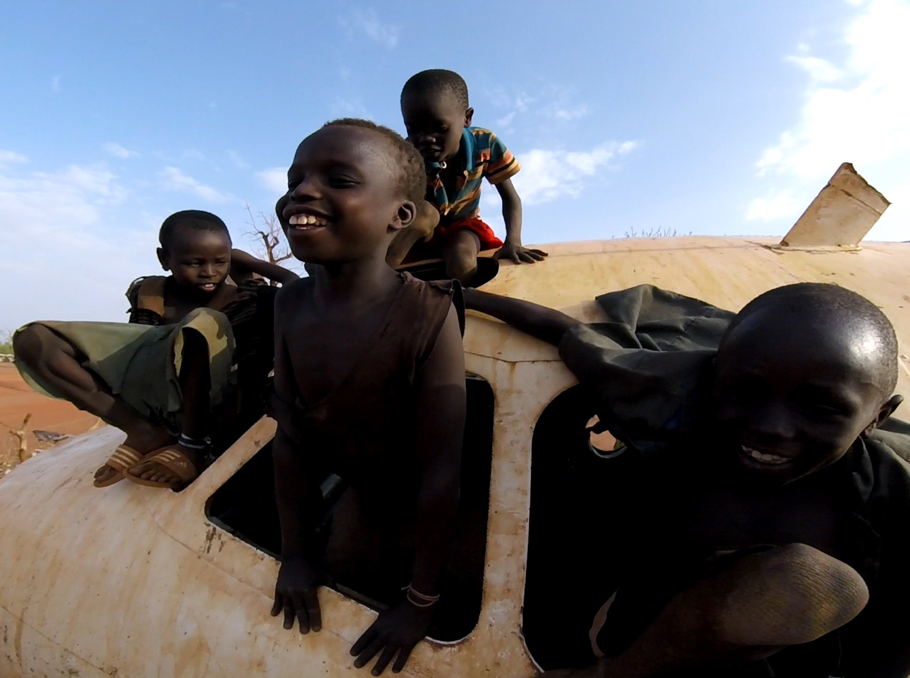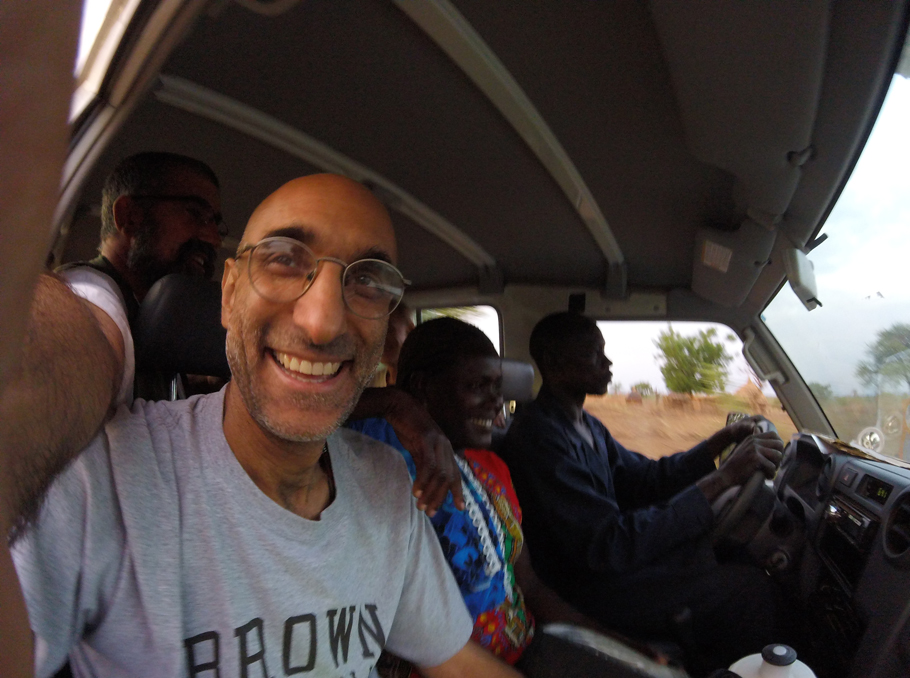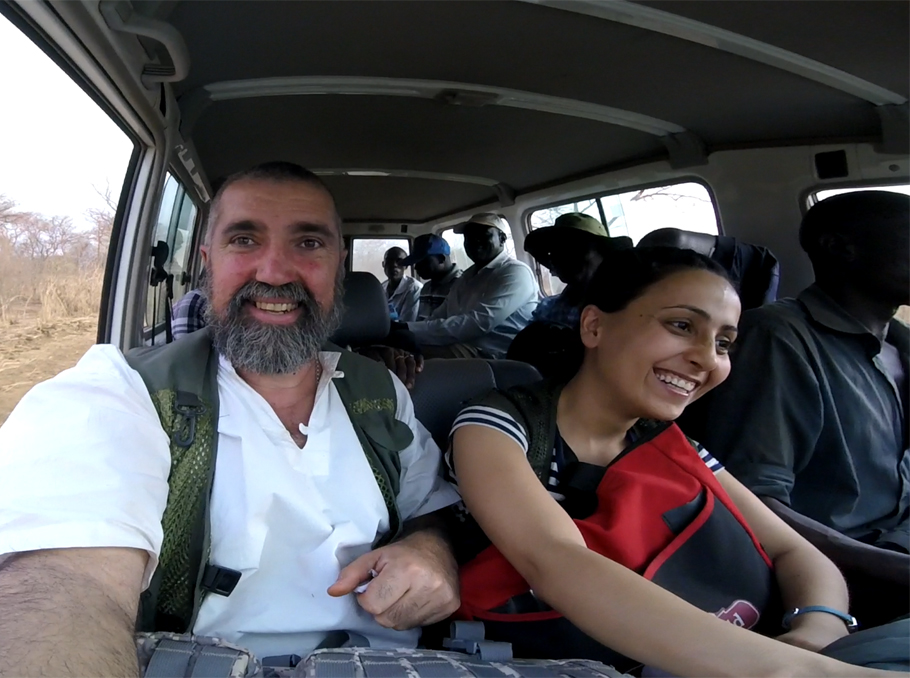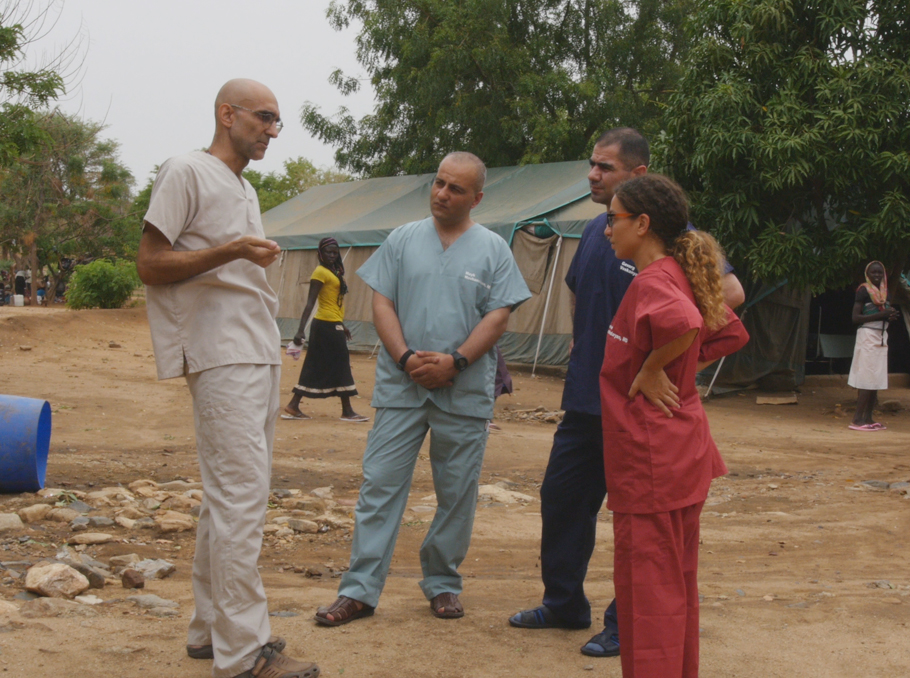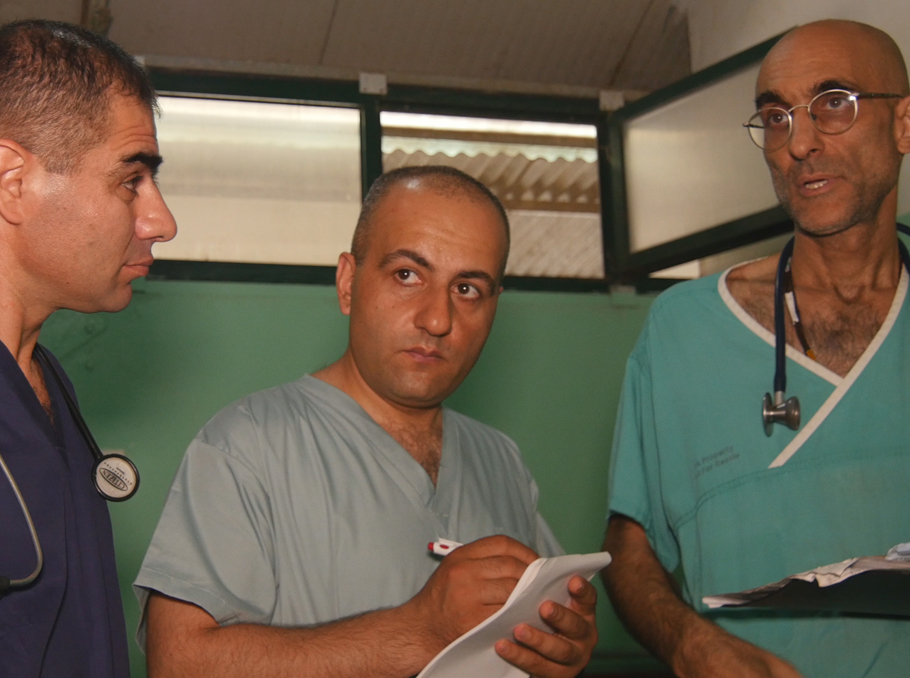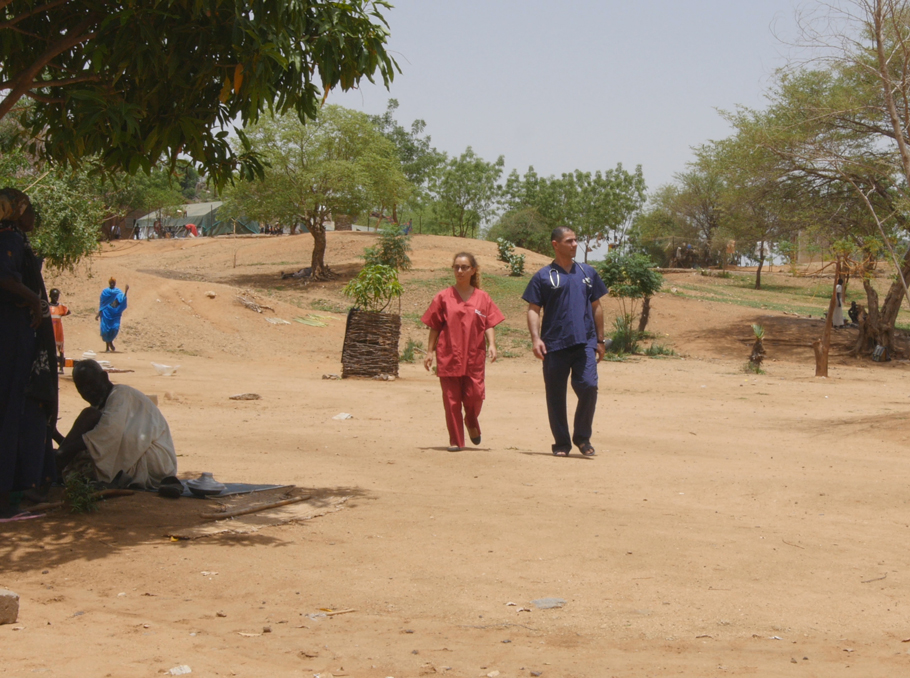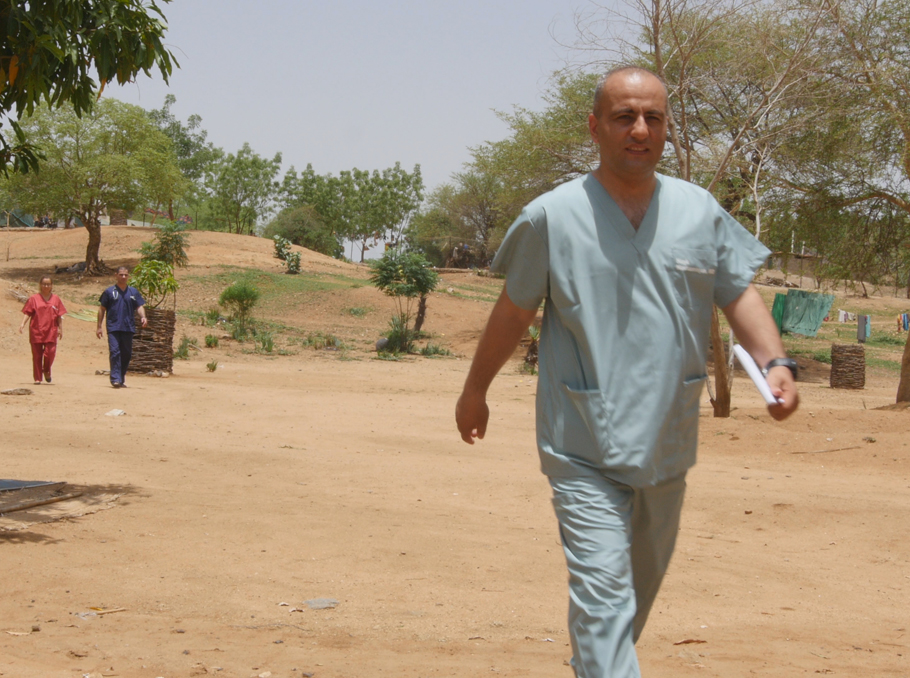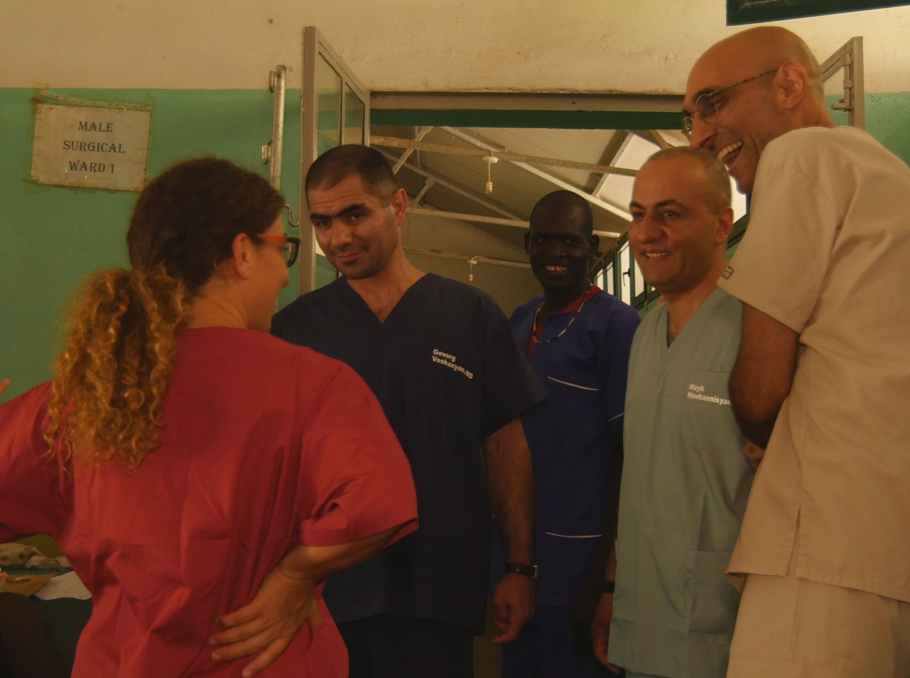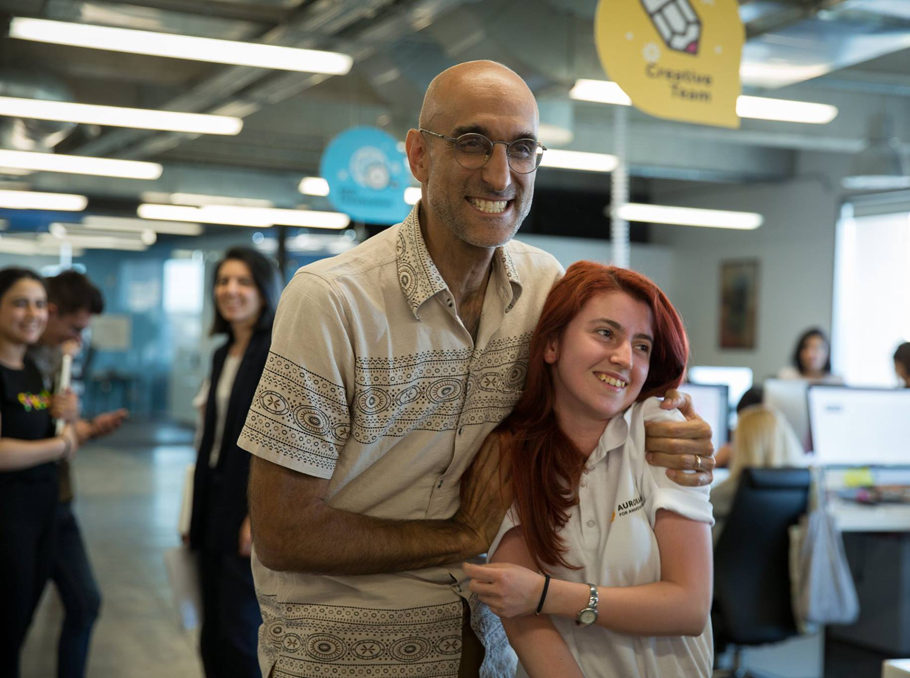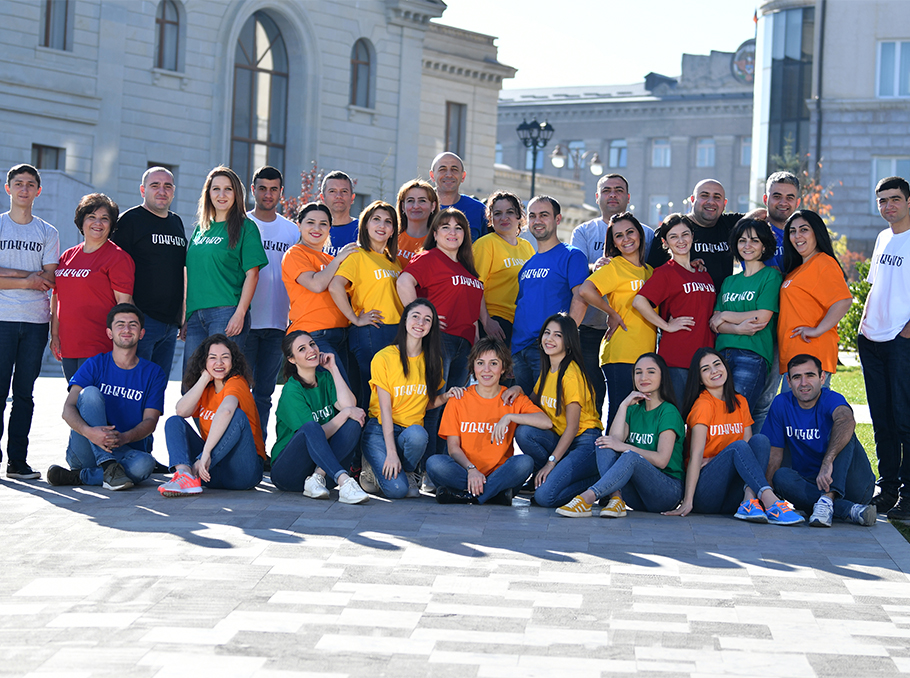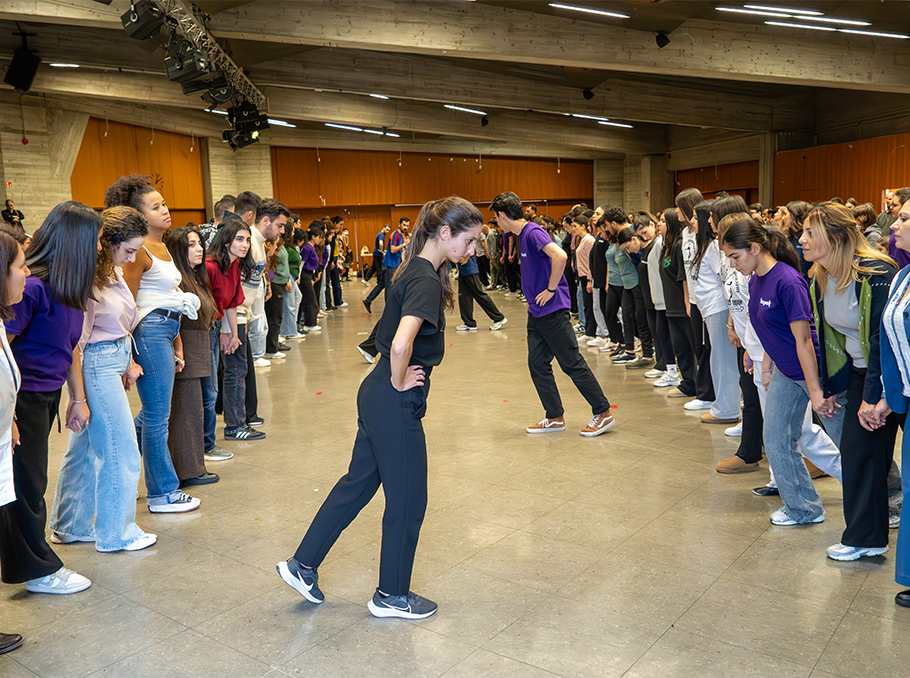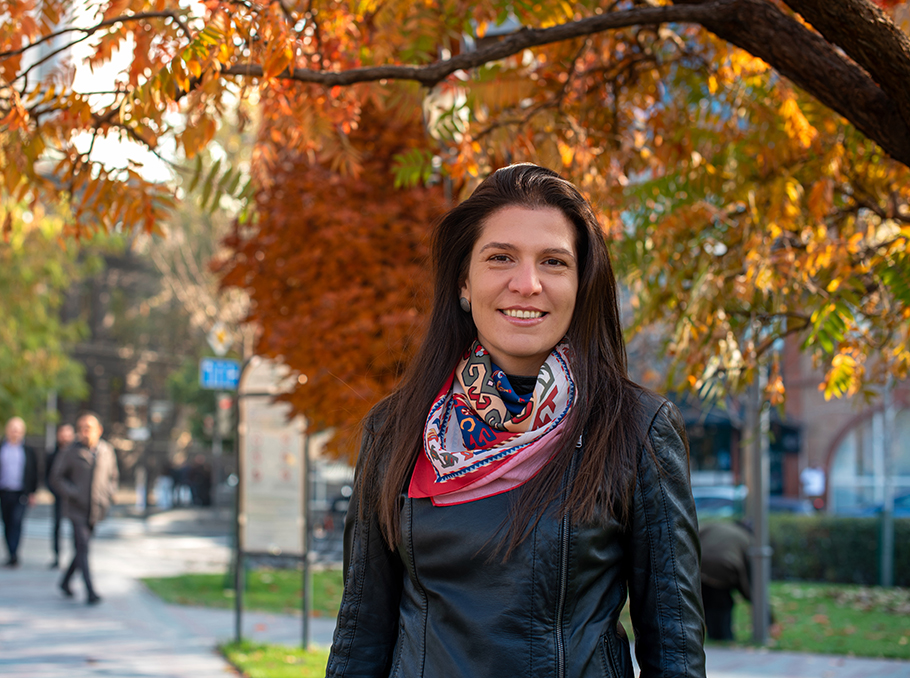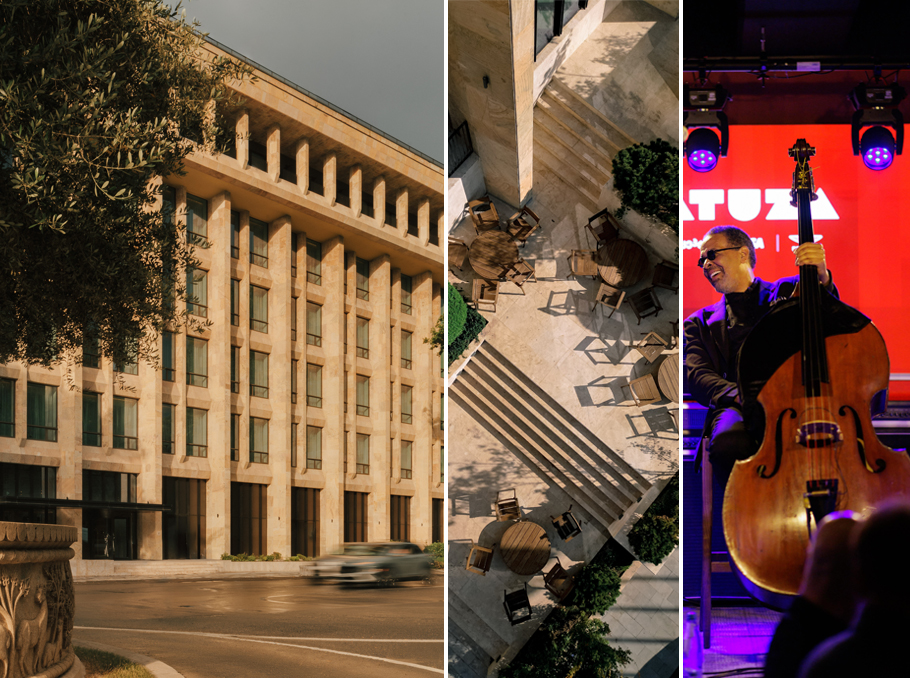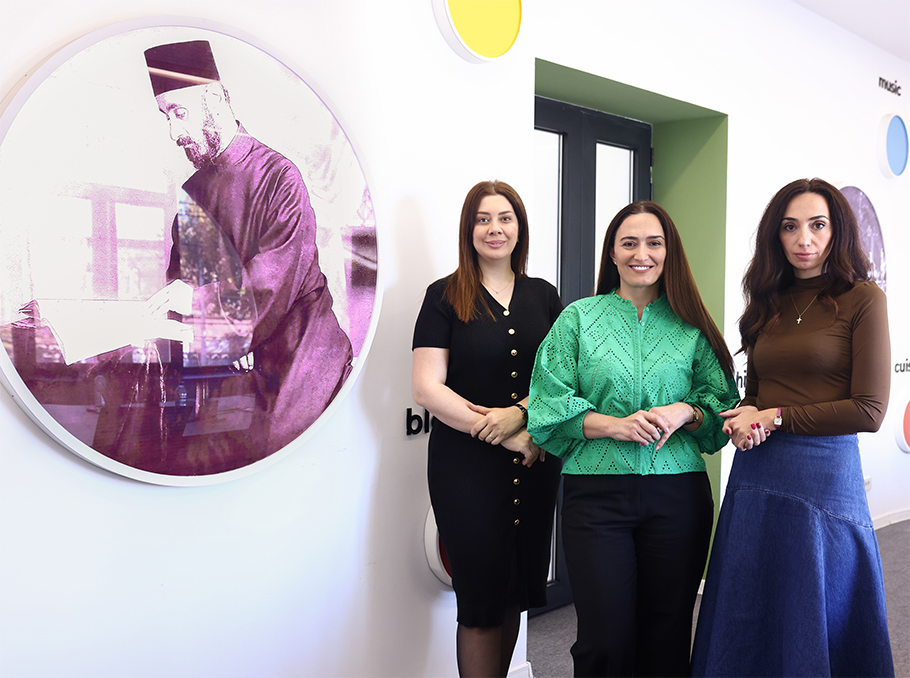On May 28 the Aurora Prize ceremony screened short films about the five nominees. The film about Tom Catena, who became the Aurora Prize laureate, was shot by Armenian film director, Founder and President of Bars Media Vardan Hovhannisyan.
Mediamax asked Vardan to tell about the off-screen part of the film.
The destination
I think the decision to trust us filming Tom Catena was conditioned by several factors. I’ve known Ruben Vardanyan and Veronika Zonabend since 1989, and they know I have vast work experience in combat and conflict zones. Another “advantage” of our studio was the ability to operatively solve technical issues: I spend 6 months every year in Kenya for almost ten years now, so I’m quite familiar with the Africa.
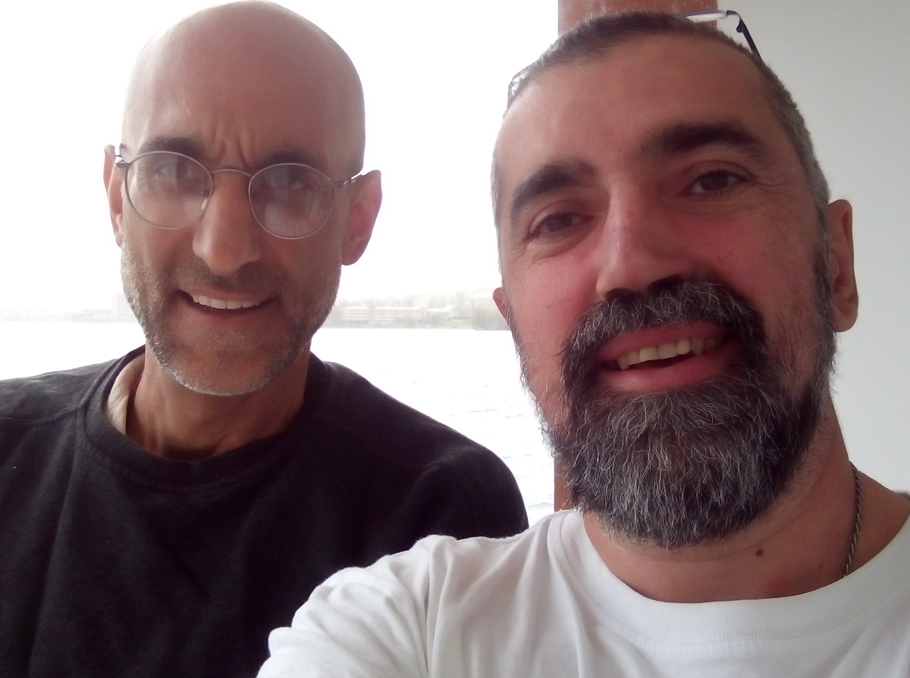 Tom Catena and Vardan Hovhannisyan
Tom Catena and Vardan Hovhannisyan Photo: Bars Media
The biggest challenges of the trip were logistics-related. We had to get permission from the Bishop in Kenya (whose diocese includes Tom Catena’s hospital), permission from the government of South Sudan (they don’t usually let in journalists because of the ongoing civil war), permission from the UN that delivers humanitarian aid to South Sudan’s border, and permission from the Nuba Mountains guerilla. The entire system is unstable and can fail at any point. I was forced to spend five days in the refugee camp on the way back in my first trip, as all flights were canceled.
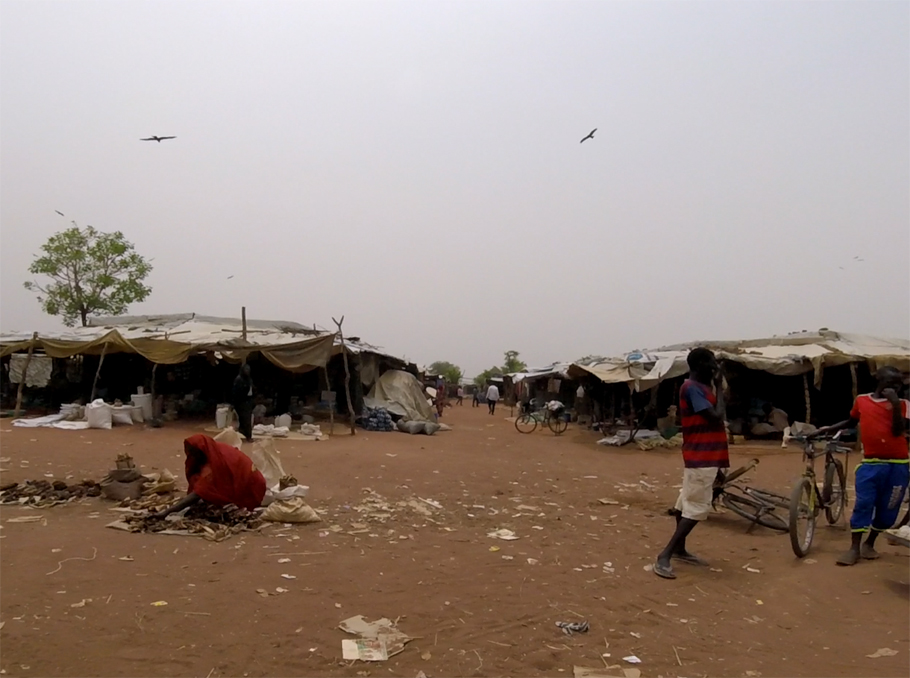 Refugee camp
Refugee campPhoto: Bars Media
Those issues create stronger tension than the war-related risks. Climate plays a large part too – roads are closed during and until the end of the raining season. In a perfect scenario, the trip to the destination takes 5-6 days.
We shot the film about Tom in April, in two stages. There were two of us, Assistant Director Khane Poghosyan and myself. I spend total three weeks in Sudan. Khane Poghosyan has been there for two months. She stayed with our doctors, who work in Tom’s place, and she films their working routine.
Juba
In order to get to Nuba Mountains, you have to fly to Juba. From there you fly to the refugee camp on Sudan border and then continue on off-road vehicle.
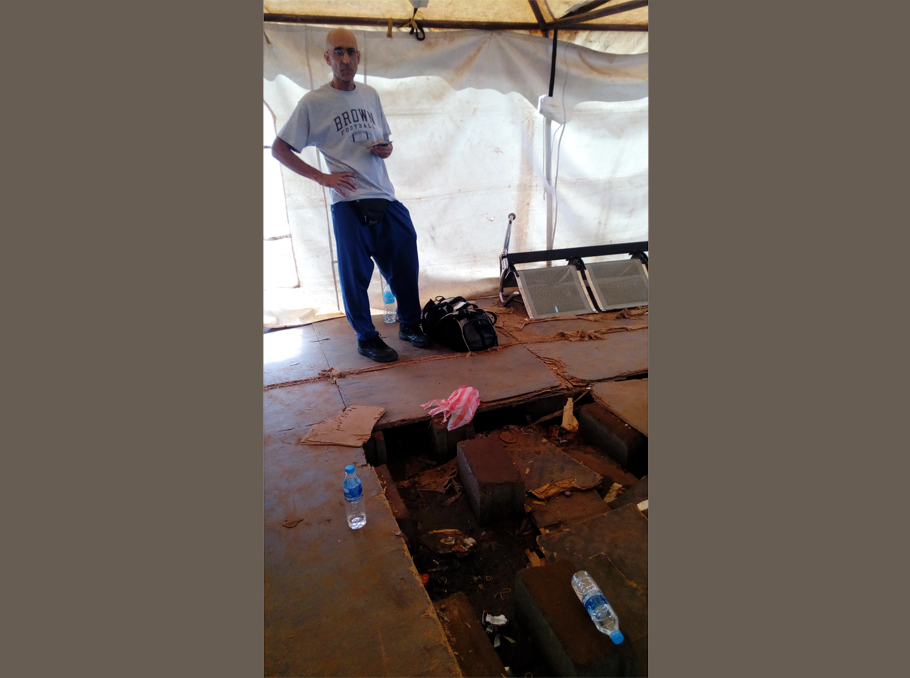 Tom Catena at Juba airport
Tom Catena at Juba airportPhoto: Bars Media
Juba is the capital of South Sudan, a completely failed state. It’s a place where everyone is hungry and armed, where the army had no payment for a year but has two hundred generals. Corruption is so terrible it doesn’t even fit into our understanding of the phenomenon. It’s a city without power and sewage system and with 7 pm curfew, but the streets are empty as early as after 5pm. The residents have only one goal – survive.
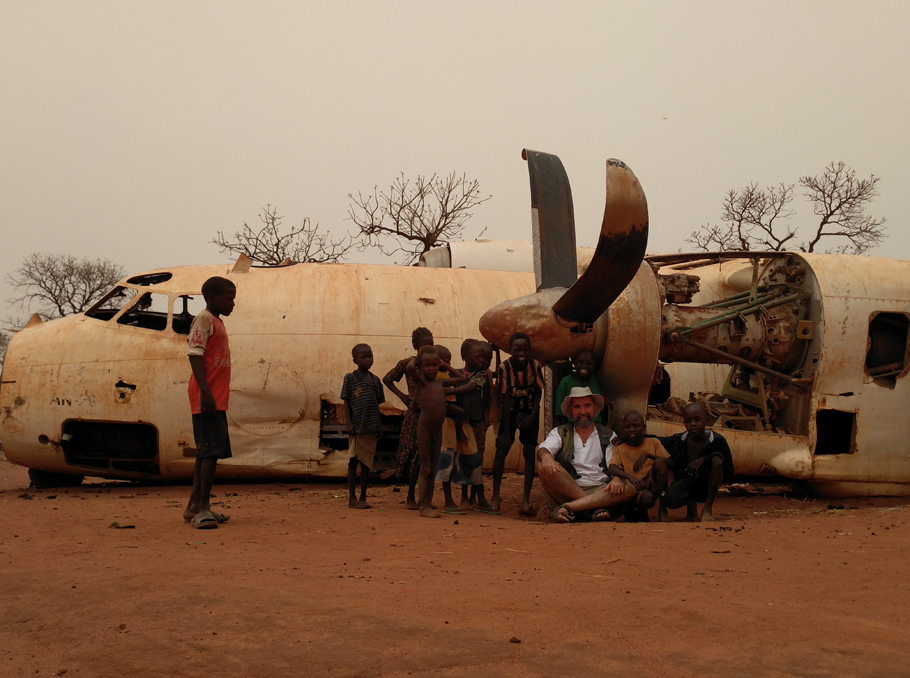 Vardan Hovhannisyan with local children
Vardan Hovhannisyan with local children Photo: Bars Media
People wait for hours in the half-ruined airport, but nobody knows until the last minute if their flights be canceled. The UN canceled our flight with the Armenian doctors, as the state closed airspace. As we learned later, the reason was dismissal of the Defense Minister. The streets became deserted at once, as all knew more military actions might follow, when everyone and everything gets shot at.
I managed to talk to the UN Coordinator for Humanitarian Aid Aram Kevorkian who lives in that nightmare for 5 years now. According to him, there’s no hope something might change in the nearest future. The main objective of the mission is to help people and jut not let them die.
The Armenian doctors
When our doctors were offered to substitute Dr. Tom, all three agreed at once. Gevorg Voskanyan and Hayk Hovhannisyan are both military surgeons, dedicated to their profession.
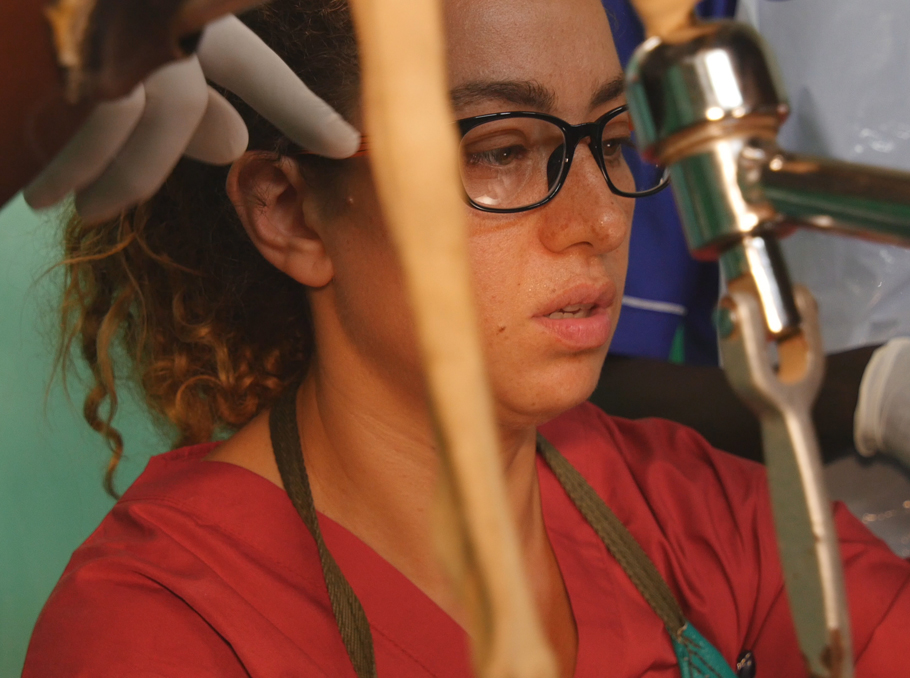 Armine Barkhudaryan
Armine BarkhudaryanPhoto: Bars Media
The third doctor, Armine Barkhudaryan, has a very interesting story. She’s an obstetrician-gynecologist, educated in Moscow. Last year she learned about Tom Catena thanks to the Aurora Prize. She was so motivated by his story that she asked me to find work for her in Africa, a place with acute shortage of doctors. I helped her get a job at a hospital in Malindi (a port city in Kenya) through my connections, and she worked there for half a year as a volunteer, performing several difficult operations every day.
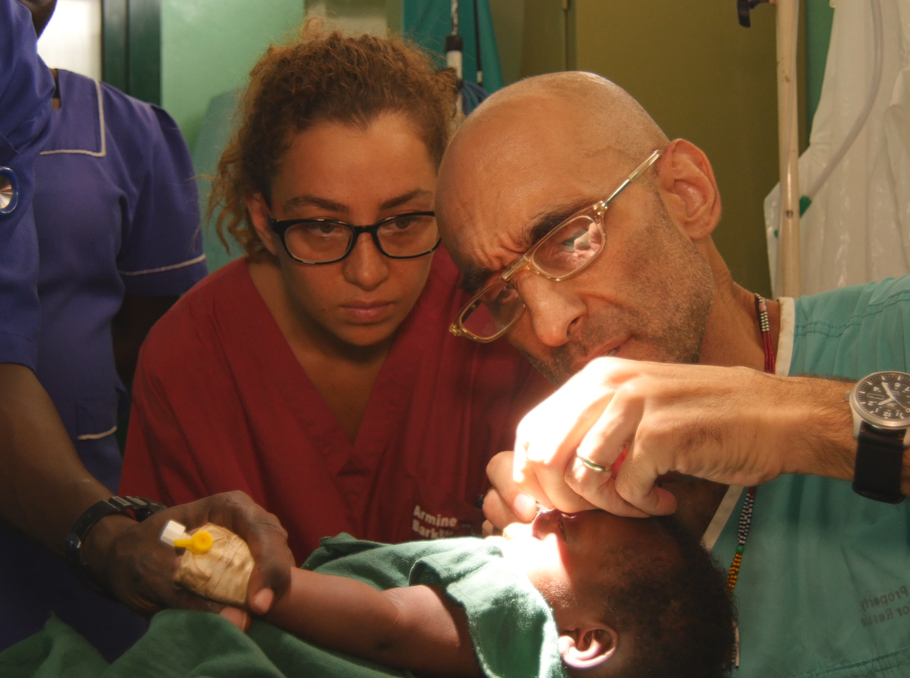 Tom Catena and Armine Barkhudaryan
Tom Catena and Armine BarkhudaryanPhoto: Bars Media
Armine was in Kenya when I called and asked her if she was theoretically interested in a trip to Sudan. Armenia replied she wasn’t interested theoretically, but wanted to get involved practically.
Armine joined me at the Kenyan capital of Nairobi, and then I met two other doctors in Juba and brought them all to Nuba Mountains. Of course, their first reaction was shock, first from the fact that Tom managed so many patients alone.
Now we’re waiting for them to return home, and then we’ll be able to breathe freely.
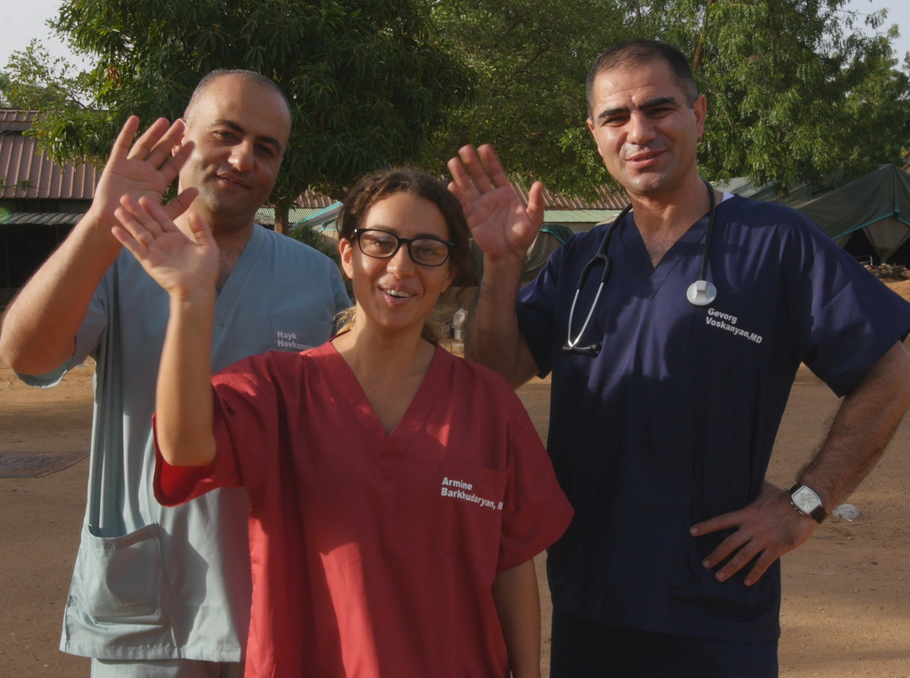 Armine Barkhudaryan, Gevorg Voskanyan and Hayk Hovhannisyan
Armine Barkhudaryan, Gevorg Voskanyan and Hayk Hovhannisyan Photo: Bars Media
I believe the Aurora Initiative managed to achieve a very important shift in our mentality: we can (and want to) transform from receiver into giver, and that brings joy and satisfaction despite all difficulties.
The proud people of Nuba
Unfortunately, the colonial system damaged many things in Africa. In most cases, local people believe that white man is a “walking wallet” and you get something out of him.
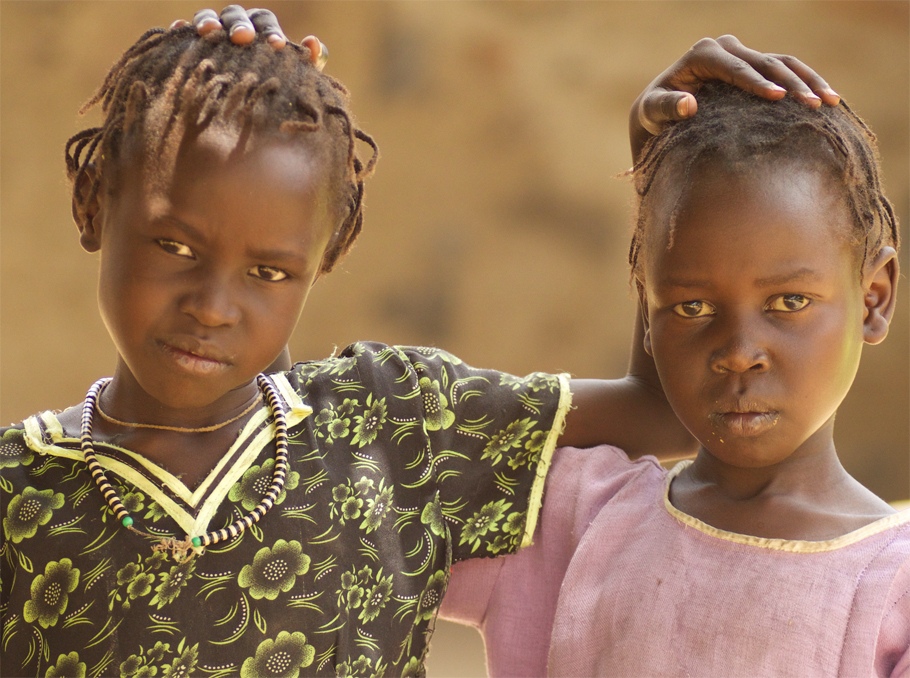 Nuba children
Nuba childrenPhoto: Bars Media
It’s different in the mountains. The people of Nuba are very reserved, proud, with obvious dignity. They are very good, strong people, living with their own traditions. They are always ready to express sincere gratitude, but they still behave equal with you.
When Tom was courting Nasima last year, he waited for the response of future wife’s relatives for two weeks (he needed agreement from all brothers of the bride) and he was sincerely worried he might not get it, although he’s an adored doctor there.
Of course, our worlds are very different and it takes time to dive into the world of the “people of the hills” and socialize there. Tom Catena managed to do that.
Doctor Tom
Tom surprised me by being a completely normal person. He’s very clear, animated, analyzing, he listens to good music and knows how to enjoy life. At the same time, he’s a real Christian missioner in the right meaning of the word. A missioner who preaches with deeds and not words.
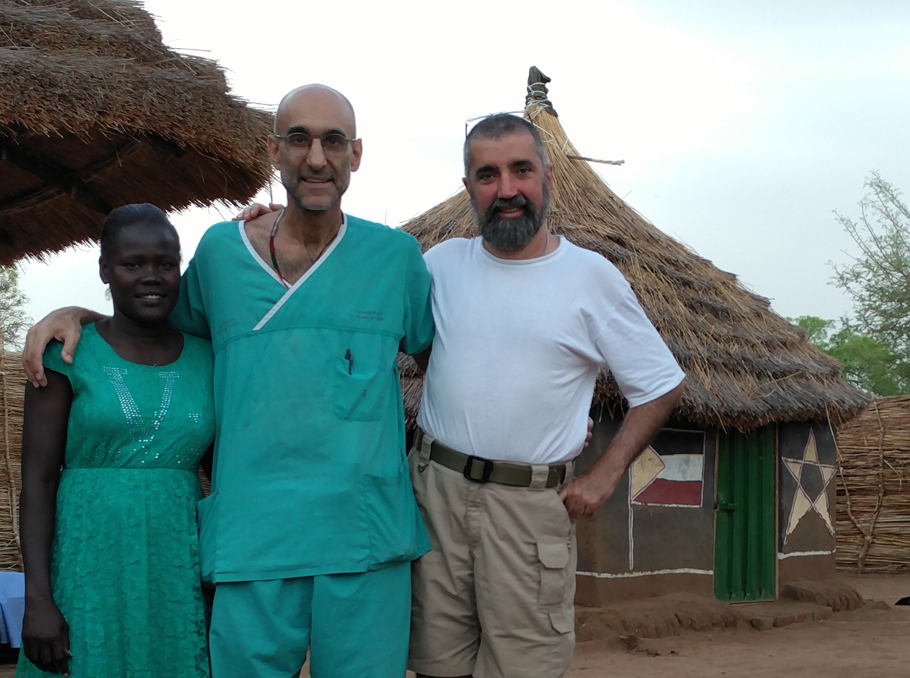 Tom Catena with his wife and Vardan Hovhannisyan
Tom Catena with his wife and Vardan HovhannisyanPhoto: Bars Media
Tom offered me to stay at his place in Nuba. He lives in a wattle and daub house with his wife like a typical Nubian. Their house doesn’t have power, sewage system or running water, but hosts lots of scorpions.
Even those conditions, far from comfort, radiated the warmth of a cozy home that Tom shared with sincerity and joy.
Tom’s every day begins the same: he gets up at 05:30 and goes to church. Then he gets back home, drinks tea or coffee and goes to the hospital. If it’s an operation day, he makes the rounds like a comet, gives instructions and goes to the operating room. He puts on Deep Purple or Pink Floyd and begins operating. The operations vary from leg abscess to cesarean section. In total, Tom performs 15-20 operations daily. His assisting team comprises the tribe’s people and doctors who come for a couple of months. In the end, all assistants are substituted, but Tom stays at the helm. The most amazing part is that he exits the operating room very energetic.
The operation day is followed by the rounds day, when he examines all patients in the hospital and receives the new patients, many of whom travel by foot for several days to see him.
There are also extraordinary operations, as the wounded may be brought in at any time.
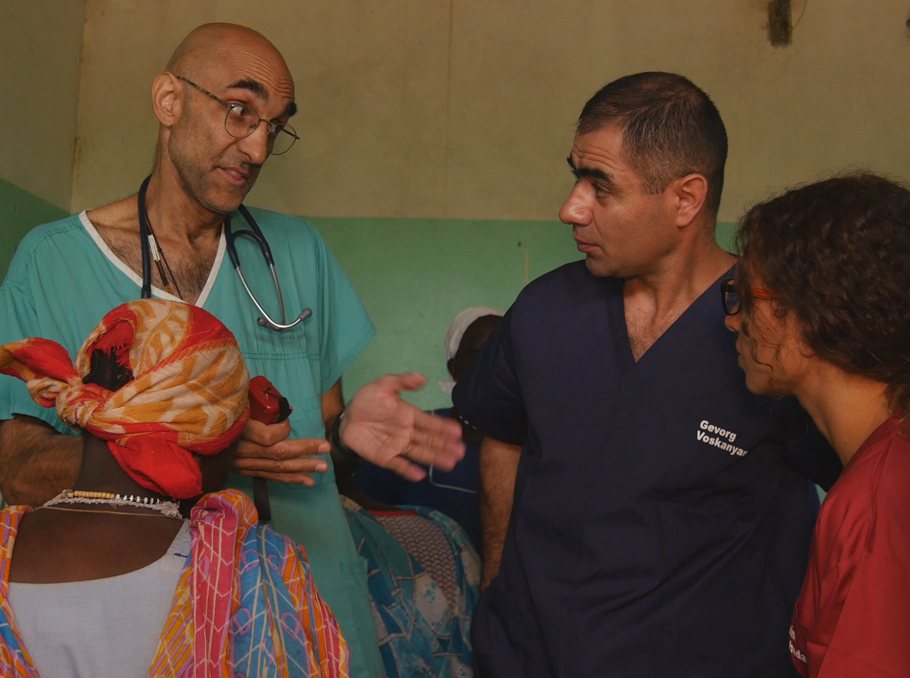 Tom Catena and Armenian doctors
Tom Catena and Armenian doctorsPhoto: Bars Media
When the Sudan forces came close to the Nuba Mountains in 2009, all doctors from local organizations were hurriedly evacuated. Only Tom and his two local students stayed. That’s what he’s about: when everything fell apart, he replaced an entire system in that emergency situation. Tom Catena took it upon himself to save people, and he’s been doing it for 9 years.
Tom rarely sees his family. One of his brothers came to his wedding last year. He was at his relatives’ place several years ago, but was ill with malaria all the time and, as he noted, was dreaming about a cheeseburger.
On our way to Yerevan, we went out in Dubai to a restaurant, but ended up at McDonald’s so Tom could eat cheeseburgers (laughs – author).
It’s impossible not to become friends with Dr. Tom. He’s such an open, kind man. He also shakes you up and helps you find the right landmarks in life. That man has amazing simplicity and integrity.
What surprised him the most in Armenia was the people. He said he never met such warm and friendly people.
Tom was my guest in Sevan for two days. He managed to sleep in the afternoon for the first time in 10 years.
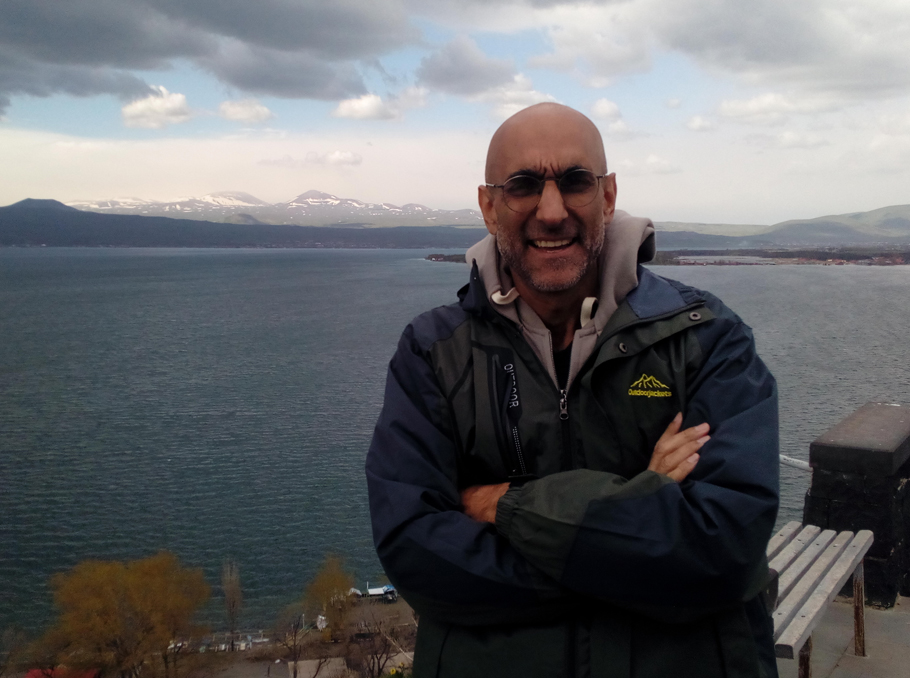 Tom Catena at Sevan
Tom Catena at SevanPhoto: Bars Media
I think he’ll definitely come to Armenia again, this time with Nasima. We had long conversations about the need to take a break. He’s not so categorical about that anymore. His health isn’t in perfect condition anymore; besides, he has a family of his own now and naturally, he wants to spend more time with his wife. However, it’ll be extraordinary for Tom to return to usual life. He doesn’t see it yet but he understands that the “machine” is in need of repairs. Perhaps, the diocese will hire two substitute doctors, but I’m not certain they can find people with the same devotion as Tom.
Anna Bubushyan talked to Vardan Hovhannisyan









